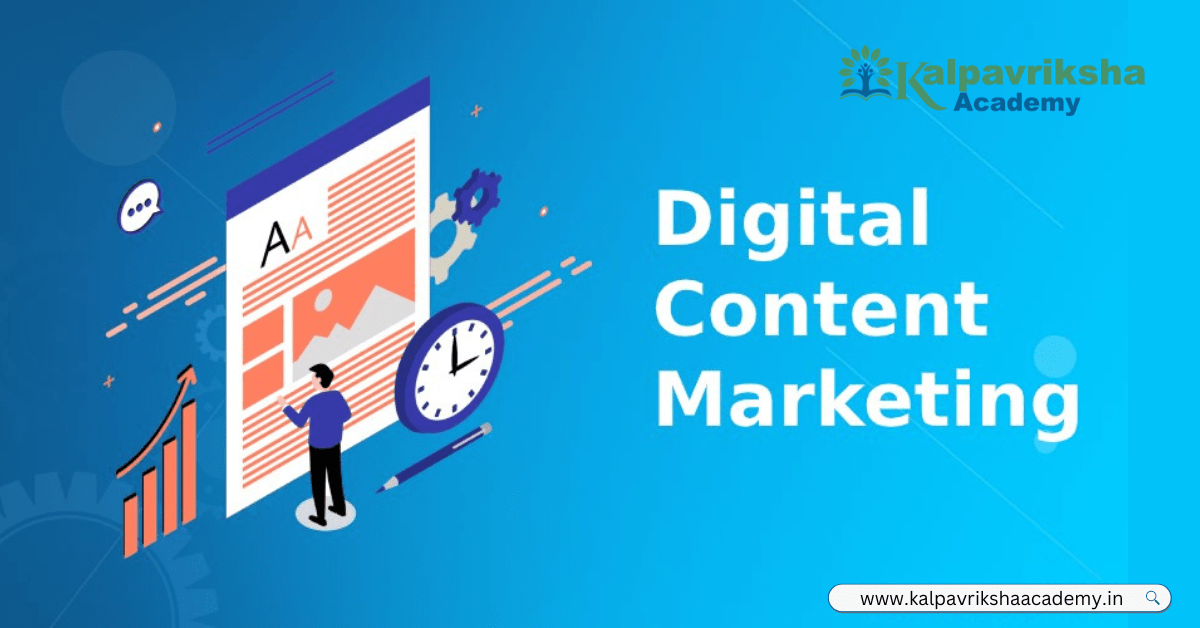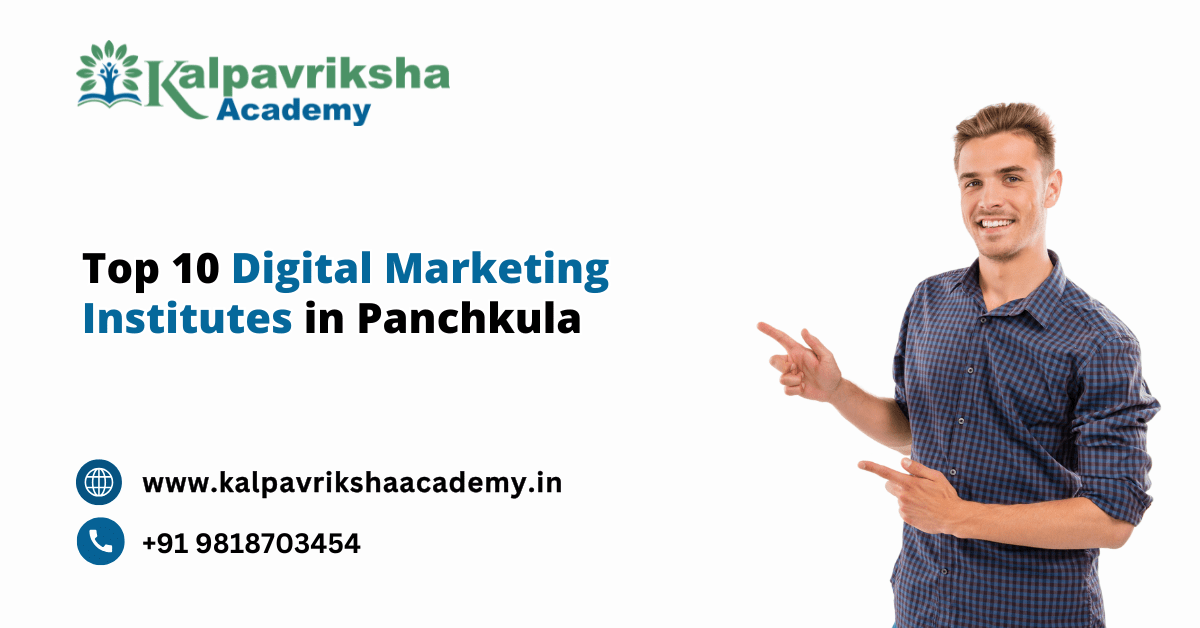Hi there! Imagine that your brand’s message reaches millions of audiences with engaging and attractive content that the audience will be your forever loyal customers. This is not just a dream, this can be reality in real life too. Wondering how? The answer is digital content marketing. The art of crafting and compelling content for the customers by using different kinds of visualizing mediums.
Through this article, you will get the proper knowledge about unlocking the potential of digital presence and brand visibility. So let’s get started.
How does digital content marketing impact businesses?
Digital content marketing has a great impact on businesses in various ways, from increasing their visibility, and customer engagement, to cost-effectiveness. Here are some key impacts of Digital content marketing on businesses :

Enhanced Brand Visibility and Awareness: With digital content marketing, businesses are able to promote their brands online by sharing high-quality videos, images, or posts on Twitter or Facebook which allows them access to more people
Increase customer engagement: It helps to increase customer engagement by providing the necessary information, videos, blogs, and articles.
Global reach: Digital content marketing can be used to reach audiences globally through ad campaigns and promotions.
Cost-effective: Digital content marketing can be cost-effective as compared to traditional content marketing and it provides more returns.
Lead generation: It also helps businesses by producing lead generations and attracting customers through engaging content.
Key elements of digital marketing content writing
The key elements of digital marketing content writing are crucial for creating engaging, effective, and result-oriented content. By focusing on these key elements, digital marketing content writing can be compelling, effective, and engaging content that meets business objectives and resonates with the target audience. Here are the key elements to consider:
Target audience identification: one of the main key elements in digital marketing content writing is that you need to Know your audience, identify their interests, choices, and demographics and according to that create your engaging content.
Compelling headings: Write attractive and catchy headlines that attract a huge audience and the head
SEO optimization: Research and use easy and relevant keywords that are easy to understand for SEO optimization.
Strong call-to-action: Use a clear call-to-action that guides the audience towards the desired action and ensures the call-to-action that is mentioned is relevant and working.
Analytics and feedback – Use the performance metrics to measure the performance of your content gather feedback from the audience and make changes according to that. ings should be clear and relevant to the content.
Top 10 digital marketing content ideas
Implementing these unique digital marketing content ideas can help you create attractive digital marketing strategies that drive engagement, build brand loyalty, and attract new customers.
Here are ten engaging and effective digital marketing content ideas to help boost your online presence and attract your target audience:
Blog Posts and Articles: Make certain that you write worthwhile blog posts that satisfy the needs of your audience. Don’t forget to target the right individuals by using SEO tactics as it improves your organic results.
Infographics: Design visually appealing infographics that communicate relevant information. Infographics that are simple to comprehend will have a big impact when they are posted on social media sites.
Videos: Create different types of video content including tutorials, demos of your products, sneak peeks behind the scenes, and customer testimonials. Videos are the best medium for digital marketing content ideas and visualizations. They are a powerful source which can help users occupy for long hours on your site, improving user experience and keeping them close to your brand.
Social Media Content: Post regularly on platforms such as Instagram, Facebook, Twitter, and LinkedIn. Use a blend of promo posts, interactive content (questions, polls), user-generated content, and industry news.
Ebooks and Whitepapers: provide comprehensive guides and whitepapers on topics that are relevant to your sector. They can serve as lead magnets to grow your email list.
Podcasts: Start a podcast or appear as a guest on existing ones. Discuss industry trends, provide expert insights, and interview influential figures to build authority and reach a broader audience.
Case Studies: Case studies can be a great digital marketing content idea because they showcase your success stories and highlight how your products or services have helped clients achieve their goals. Case studies build credibility and can influence potential customers.
Email Newsletters: Keep your audience engaged with regular email newsletters featuring company updates, blog post summaries, exclusive offers, and industry news. Personalize content to enhance engagement.
Interactive Content: Generating either a quiz, a poll, a calculator or an interactive infographic can help to promote different forms of audience engagement. When crafted well, interactive material can improve the performance of a webpage by attracting more input from users and as a result prolonging their stay.
Webinars and Live Streams: Choose topics that are interesting to your target audience, ensure you have a good internet connection, and avoid any interruptions when you are hosting webinars or live streaming thus giving easy ways to provide the audience with relevant information. To increase engagement even more efficiently, be sure to conduct question-and-answer sessions.
5 benefits of Digital Marketing Content Management Systems
By leveraging digital marketing content management systems, businesses can enhance their content creation and management processes, improve collaboration, boost SEO efforts, scale operations efficiently, and make data-driven decisions to optimize their marketing strategies.

Digital marketing content management systems (CMS) offer numerous benefits for businesses looking to efficiently manage their digital content and marketing strategies. Here are five key benefits:
Content Creation and Management: User-friendly interfaces that often do not require extensive technical knowledge are usually provided by digital marketing content marketing systems platforms which enable users to develop, modify, and release information.
Improved Collaboration: Digital marketing content management system (CMS) tools frequently include characteristics for collaboration allowing more than one team member to work on content concurrently thereby simplifying the endorsement procedure.
SEO Tools and Plugins: Several digital marketing content management systems have their in-built SEO tools or plugins to help with content optimization for searches through keyword adjustments, meta tags as well as sitemaps.
Scalability and Flexibility: Content management systems are intended to develop as businesses grow, permitting you to increase the volume of content while handling more visitors without having to pay huge amounts of cash. They are also known for their flexibility.
Analytics and Insights: Most CMS platforms come with analytics tools that provide insights into content performance, user behavior, and engagement metrics.
How does a content strategy in digital marketing boost audience engagement?
By following these steps content strategy in digital marketing can boost audience engagement:
Targeted and Relevant Content: Be sure to write material that resonates with the interests, needs as well and troubles of your audience so this way they may value it. All this will make them like, share, or comment about what you have written hence spending more time on your website as well.
Diverse Content Types: To meet different preferences and learning styles, you should employ different content types such as videos, infographics, blog posts, podcasts, etc. This way, you will retain the interest and attention of your audience because they consume that content through their favored channels.
High-Quality Visuals and Design: one of the best content strategies in digital marketing will be high-quality eye-catching content, including well-designed infographics, high-quality images, & videos that hold people’s attention & make them want to engage with it, thus enhancing user experience by increasing chances of interaction with your content
SEO Optimization: An SEO content strategy in digital marketing enables you to create valuable content that can be found by search engines. More people can visit your site from the search engine, hence enhancing engagement opportunities based on search result standpoints
Different types of content in digital marketing
By leveraging a mix of these types of content in digital marketing, digital marketers can create an attractive and engaging content strategy that visually pleases different segments of their audience and meets various marketing objectives.
These are the following different types of content in digital marketing :
Blog Posts and Articles: Provide detailed guides, how-tos, and industry insights to educate and inform your audience. This helps to improve SEO and drives organic traffic
Videos: Nobody does it better than us when it comes to captivating explainer videos, product demos, and customer testimonials. This has resulted in an improvement in user engagement and retention rates.
Infographics: Data visualization is the creation of visual representations of data and complex information. Create data visualization with high shareability and easy readership, they are simply understood.
Social Media Content: Customers’ perceptions about a business are changed by almost daily updates, consistent stories, and unique reels designed for each platform. This makes the brand more recognizable and raises the level of interaction between the business and recipients.
Ebooks and Whitepapers: Comprehensive guides and research reports. Used as lead magnets to build your email list.
Podcasts: Interviews with industry experts and educational discussions. Expand your reach and establish authority.
Case Studies: Success stories demonstrating how your product or service solved a customer’s problem. Builds credibility and trust.
Email Newsletters: To maintain a high level of engagement and loyalty from their readers, they aim to provide regular updates and curate content specifically for the subscribers.
Conclusion
Digital content marketing and digital marketing content management aim to be more competitive in the market. One can create deep bonds with their audience, spread awareness of the business, and result in continuous engagement as well as conversions through the display of intelligent, informative, and useful content. Just like you do on all digital channels if there is one social network in particular you will concentrate on, or if you are going to use a different version of your message depending on the platform altogether. If implemented properly these principles can completely turn around your current approach online and bring you long-term prosperity. Lastly, if you are looking for a digital content marketing course online then consider enrolling in Kalpavriksha Academy to get all the benefits and digital content marketing certification.
FAQs
- What is digital content marketing and why is it important?
Digital content marketing involves creating and sharing online content to attract and engage audiences. It’s important because it builds brand awareness, authority, and customer loyalty, driving profitable actions.
- What types of content are most effective in digital content marketing?
Effective types include blog posts, videos, infographics, e-books, whitepapers, and social media posts, as they enhance SEO, engagement, and lead generation.
3. How can you measure the success of your digital content marketing efforts?
Success can be measured by website traffic, engagement metrics, lead generation, conversion rates, SEO performance, and return on investment (ROI).










